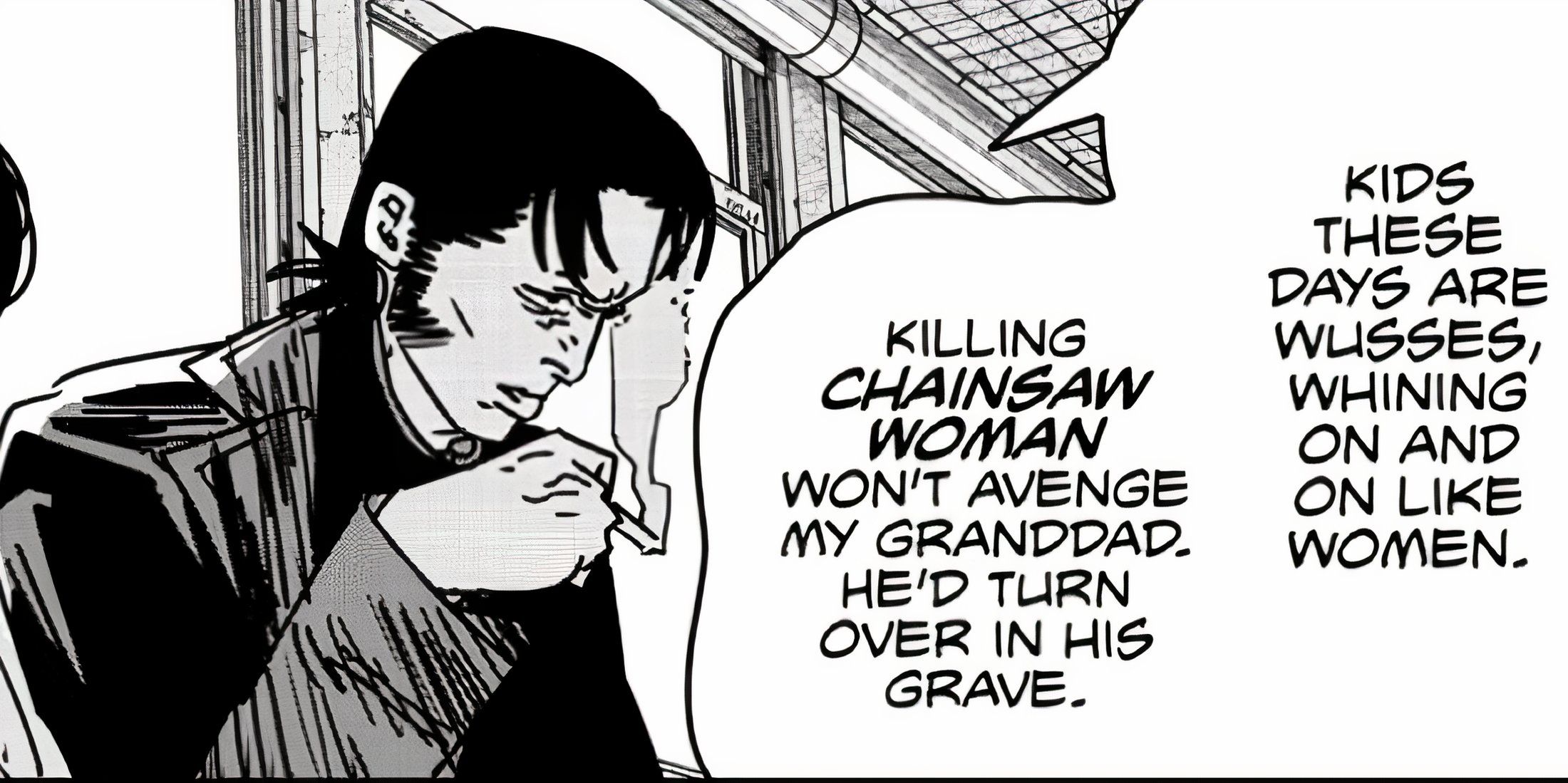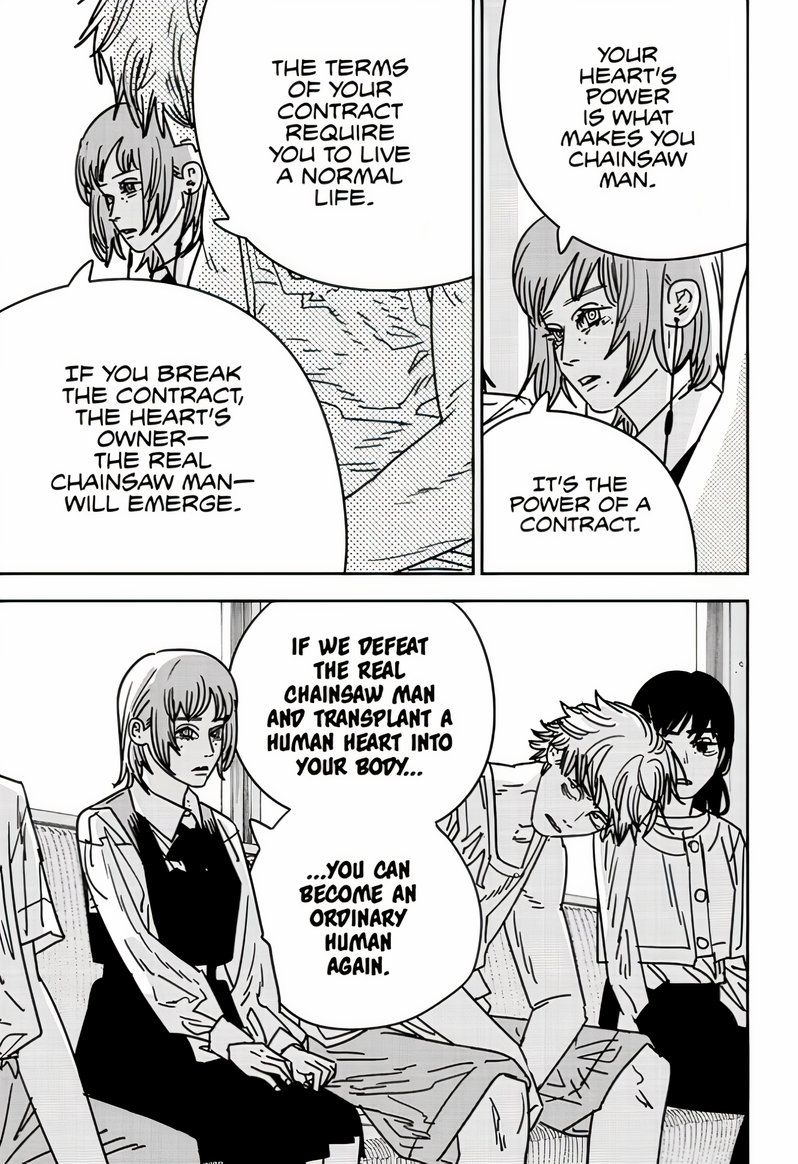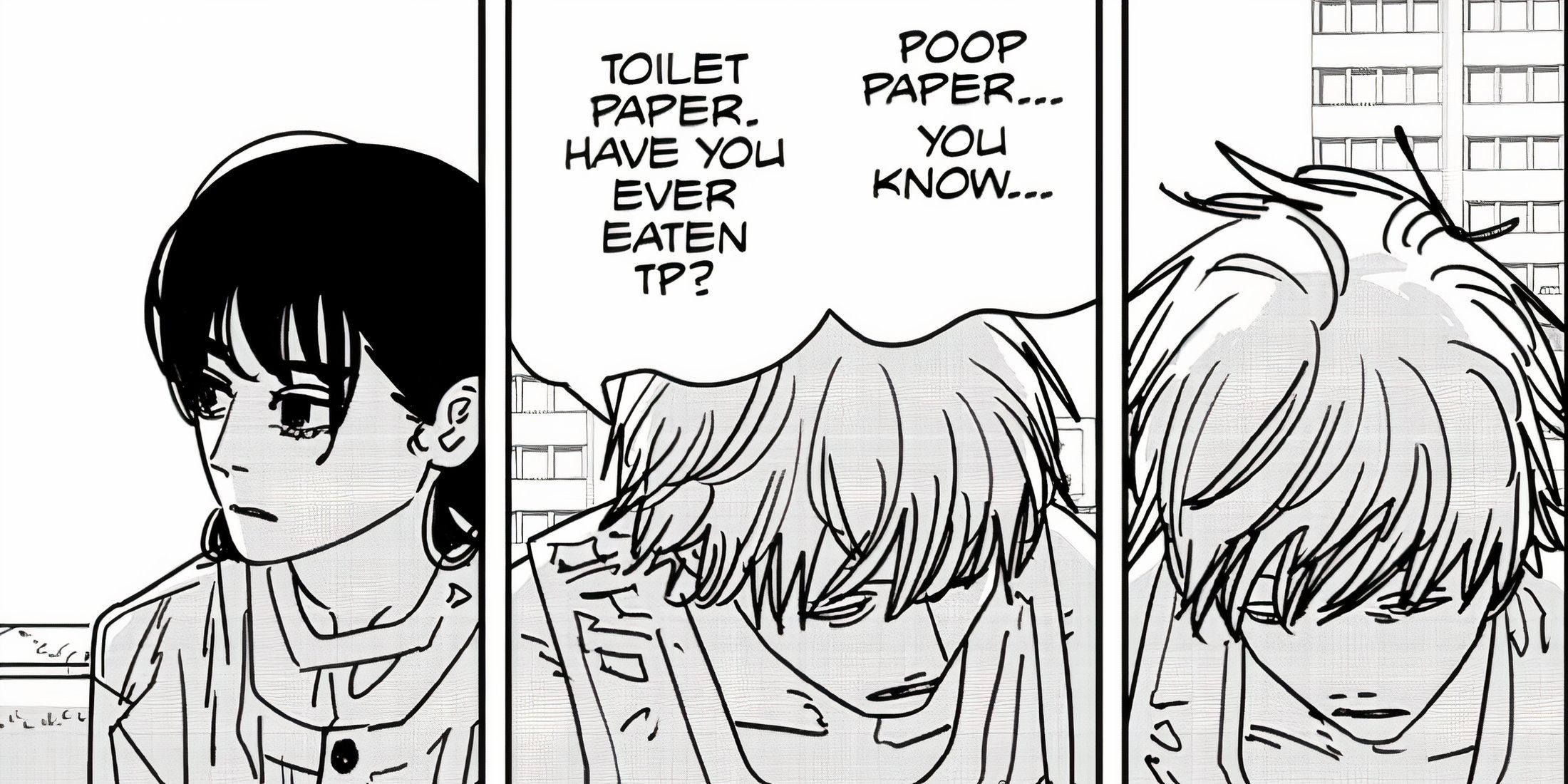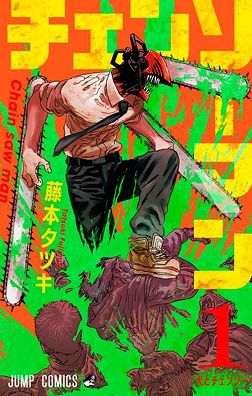After a week-long hiatus, Tatsuki Fujimoto's Chainsaw Man returns with Chapter 165, "Everyday Scenery". Following an intense arc that culminated in Denji being chopped to pieces, rescued by some of his greatest enemies, and then having his identity as Chainsaw Man revealed to his crush, fans have been anxious to see where Fujimoto could possibly take things next. "Everyday Scenery" is a slice of life chapter that shows Denji's new normal, and reminds readers how far from normal Denji's life always was.
The "Everyday Scenery" of Chainsaw Man Chapter 165 is both tragic and beautiful. It's tragic in how bad things have gotten for the world in the time since Denji was captured by Public Saftey, but beautiful in the way that Fujimoto presents each panel with emotion and purpose. Few shonen series can pull off a chapter with no action that leaves readers hanging on every word of dialogue with the same anticipation as they would each punch of a major fight scene, but Chainsaw Man does just that. Instead of using wordy dialogue dumps to tell its story as other series might, CSM 165 employs facial expressions, cinematic background scenery, and even nameless extras to tell a much more human story that resonates with readers.
The "New Normal" of Chainsaw Man 165 Highlights the Abnormality of Denji's Life
Fujimoto's Art Carries What Would Otherwise Be a Slow Chapter
Tatsuki Fujimoto is well-known for being a huge cinemaphile whose art is heavily influenced by movies. That influence comes out in surprising ways in his most famous manga, and CSM Chapter 165 underlines one of the biggest ways it shows up. Ch 165's paneling and choice of perspective draw heavy similarities to what might be seen in a movie, giving even the most mundane moments an added sense of drama. Katana Man smoking his cigarette on the train is a perfect example of this cinematic approach.
Something like a character smoking a cigarette is usually something most mangaka would like brush-past to get to the action, but Fujimoto places emphasis on this instead, giving it a sense of deeper importance. It not only serves to introduce Katana into a conversation he was previously absent from, but raises the reader's anticipation for what he might say, especially considering his storied past with Denji. Another powerful panel in this chapter that's equally cinematic is on page 10, when Denji is talking to Asa about his past. Him telling her "I can never go back to the way things used to be." is set to a background of buildings on fire through the train window, giving Denji's single sentence multiple layers of meaning. It adds to the ominous quality of an already depressing tale, as it's not just Denji's personal life that has changed, but that of the entire world around him.
This change is highlighted in yet another powerful image, as Denji looks at a mother and her son sitting in the seat across from him on the train. Both the boy and his mother have bandages on their faces, and the boy lay sleeping on his mother’s arm. Through the window behind them, buildings are completely crumbled and destroyed, demonstrating just how terrifying the world became in the short time between when Denji was captured by Public Safety, to when he woke up in Fami's apartment.
Denji's New Group's Dynamic is Coming Into its Own
Katana Man and Fami May Be Helping Denji For Reasons Beyond Just Their Personal Goals At This Point

Other than Fujimoto's art, the standout aspect of CSM Chapter 165 is the character's interactions. Asa and Denji's relationship continues to bloom, even as Denji himself shows little interest in anything emotionally. Asa has officially doubled down on her personal feelings for Denji, vowing to him "I'll save you, no matter what!"
Aside from Asa, though, two people Denji surprisingly begins to connect more with in Chapter 165 are Fami and Katana Man. On Fami's part, Denji only begins to learn how knowledgeable Fami is about Devils (which is understandable considering she's the Famine Devil), and questions why Asa even trusts this "shady chick". Fami still maintains her signature, stoic demeanor, but when Denji looks over at her after learning that she helped Asa save him, it shows that Denji is at least acknowledging her as someone who may be in his corner.
One of the best interactions in the chapter is between Katana Man and Denji. Samurai Sword used to hate Denji's guts and was very outspoken about it, making his willingness to help Denji one of the more shocking developments of Chapter 165. Katana already began to show a bit of this affinity in CSM Chapter 164, "Charred Remains", when he cursed out Asa for being selfish when Denji was hurting, though that could have easily just be viewed as more of a criticism of Asa than him being supportive of Denji. In Chapter 165, however, his offbeat suggestion that they take Denji to a brothel is very clearly his way of showing empathy to Denji, even if he does call Denji "Chainsaw Woman" in a characteristically misogynistic diss from Katana.
Ultimately, these interactions between Denji and his new group of "friends" further solidify them as his allies. Just as Power, Denji and Aki were once a set of reluctant allies that grew on each other over time, Denji, Asa, Fami and Katana have clearly begun to take on a similar role. Whether they can ever become as beloved as Aki and Power were is yet to be seen, but it's a welcome development for the series to set up a new shonen friend group for Denji, even if fans only expect Fujimoto to kill them off in the most sadistic of ways at some point in the future.
Can Denji Survive Without Pochita?
Pochita is Denji's Heart That Keeps Him Alive, But Fami Reveals a Way He Could Return to Normal

In CSM Chapter 164, one of the biggest emergent conflicts appeared to be the fact that Asa's own identity as the War Devil's vessel was now hidden to Denji. The biggest problem between them throughout Part 2 seemed to be Denji's own identity as Chainsaw Man being a mystery to Asa. After Asa learned the truth about Denji, it became clear that an even bigger roadblock in their relationship would be the fact that Yoru could take over Asa's body at any moment. However, Chapter 165 puts that problem on the back burner for now, in a somewhat clever way.
When Denji asks Asa "remind me, why are you out to fight me now?" Asa gives him the truth: "because if I fight you and win, you'll be saved." Fami then takes over, and goes on to explain to Denji the nature of his power as Chainsaw Man, and how he could potentially live as a normal human being if his heart is transplanted after Pochita is defeated. Most of all, this answers another big question in the series: whether Denji could ever live as a normal person again without Pochita as his heart.
It also explains how Makima was able to get Pochita to emerge from Denji in the first place, as the terms of their contract are that Denji lives a normal life, and breaking that contract is what forces Pochita to emerge. While the circumstances around Denji's contract were mostly understood since Part 1, Chapter 165 confirms the hard details of Denji's power in a much clearer way than ever, and explains how Denji could possibly become a normal human being again. As Denji takes care to point out to both Asa and Fami, his life was always far from normal, and ever going back to that kind of normal for him would be impossible.
Chapter 165 Highlights How Much Denji Has Changed
Denji Can Never Go Back to His Old Ways, Even if He Tried

The most powerful set of dialogue in Chapter 165 comes by way of Denji's discussion with Asa. He tells her how he used to be forced to eat toilet paper from a local park bathroom as a child in order to quell his hunger, adding a new detail to his tragic childhood that fans hadn't heard before. While it's definitely sad to hear, it's also extremely important for Denji's character, because him acknowledging how what he went through was wrong is also a way of showing that he recognizes how bad things were for him in the past. Taking that into consideration, when Denji tells Asa "I can never go back to the way things used to be" it's not just that he literally, physically can't. Rather, it's that he psychologically has changed too much to ever go back to that lifestyle. Denji never wants to go back to the life he used to live, and he has changed so much that he might not even be able to survive while living in the same way he used to.
A chapter titled "Everyday Scenery" should be expected to be filled with a lot of background imagery, but Chainsaw Man revels in turning the expected into the unexpected. Denji's scenery is far from normal, as is the group that he finds himself a part of. Above all, Chapter 165 reminds readers just how abnormal Denji's entire life has been, even as he slowly becomes acclimated to a "normal" life with Nayuta. Whether Denji can ever regain that sense of normality will be one of the major questions for the series going forward, but one thing is for certain, Denji can never go back to how things were before he gained that sense of normalcy.


